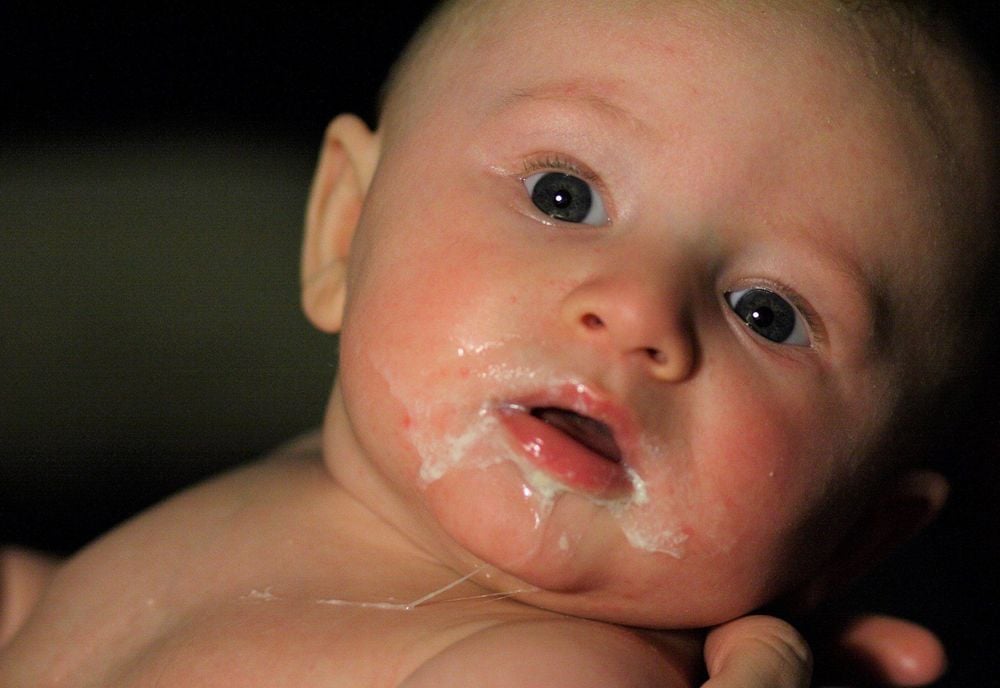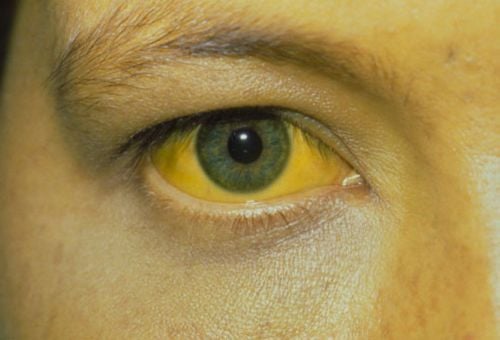This is an automatically translated article.
The article was professionally consulted with Master, Doctor Ngo Thi Oanh - Pediatrician - Department of Pediatrics - Neonatology - Vinmec Ha Long International General Hospital.The manifestations of digestive disorders in infants and young children are vomiting, diarrhea, constipation, abdominal cramps,... There are many causes of digestive disorders in children and timely overcoming them. Time will help the baby have a good digestive system, catch up the growth momentum.
1. What are children's digestive disorders?
Digestive disorders are abnormal contractions of the sphincter muscles in the digestive system, causing abdominal pain and changes in the digestion of food.Digestive disorders in children can cause many negative effects on the baby's development later, because this is the period when the child's body needs a stable source of nutrients. When digestive disorders appear, the amount of nutrients provided to the body is significantly deficient. As a result, children are malnourished, retarded in physical and mental development, and have weakened immune systems. Later, children are prone to relapse of digestive disorders when there are agents from the environment that attack the digestive system.
Trắc nghiệm: Làm thế nào để bảo vệ lá gan khỏe mạnh?
Làm test trắc nghiệm kiểm tra hiểu biết về gan có thể giúp bạn nhận thức rõ vai trò quan trọng của gan, từ đó có các biện pháp bảo vệ gan để phòng ngừa bệnh tật.2. Symptoms of digestive disorders in children and how to handle them
2.1 Vomiting Vomiting is the phenomenon of pushing back the contents of the stomach through the mouth under the influence of physical exertion. Causes of vomiting in infants and young children include: sucking too full, feedings too close together, changing new milk, nipple hole too large or too small, lying in the wrong position.About 75% of children's regurgitation disappears after the child is 1 year old, so it is also called physiological regurgitation. To limit physiological regurgitation, parents need to pay attention to feeding their children several times a day, without overfeeding in each feeding, and feeding the baby in the correct position; Let the baby lie down after vomiting, do not give milk immediately. If the adjustment of diet and feeding position does not work, parents can give the baby medication as prescribed by the doctor.
In addition to physiological regurgitation, gastrointestinal malformations such as intestinal atrophy, esophageal atrophy, congenital colonic aneurysm, etc. are also causes of vomiting in infants and young children. If treatment is delayed, the child may die. Parents should take the baby to the hospital if the mother has a history of polyhydramnios during pregnancy or the child has foaming immediately after birth, spits up mossy green discharge, distended abdomen, does not pass meconium within 48 hours after birth. born.
Children who vomit a lot can also become dehydrated, lose electrolytes (loss of sodium, chlorine) and fatigue. Parents need to pay attention to monitor, take their children to the hospital if the child shows signs of vomiting accompanied by fever, fatigue, vomiting accompanied by convulsions or lethargy, vomiting many times within 6 hours, ... If vomiting is acute with fever, it may be due to gastrointestinal diseases such as stomach and intestinal infections, food poisoning, rhinitis, ear, meningitis,...

Nguyên nhân gây nôn trớ ở trẻ sơ sinh và trẻ nhỏ có thể do bú quá no
Causes of diarrhea in infants and young children are: due to the mother taking medicine or using laxative food. , intestinal infections, milk allergy, poor absorption of nutrients, ... This disease causes malnutrition, even death due to dehydration, electrolytes, if not treated promptly.

Tiêu chảy cũng là một dấu hiệu rối loạn tiêu hóa ở trẻ sơ sinh
Early treatment, focus on rehydration, electrolytes and ensure the child's diet. Give your child plenty of oresol water to drink. If the child vomits, wait about 10 minutes and then continue to give the child a drink. When drinking oresol water, children should drink it slowly, each spoon is 2-3 minutes apart; If dehydration is severe, parents should take the child to the hospital for treatment; Feed your child foods such as potatoes, rice, chicken, pork, soy milk, vegetable oil, carrots, bananas, apples, sapodilla; If children under 6 months of age have diarrhea and are breastfeeding, the mother should continue to breastfeed and increase the number of feedings. For children over 6 months old, in addition to breast milk and formula, parents should give their children more and less nutritious foods, adding a little fat to increase energy intake. 2.3 Constipation Manifestations of constipation are infrequent bowel movements, every 2-3 days, stools are dry, solid, moldy, hard like pebbles or big, solid, hard abdomen, feeling pain, gnawing go to the toilet but can't go,... Consequences of constipation are making children anorexia, growth retardation, abdominal pain, vomiting and fussiness.
The cause of constipation in infants and young children is because the baby does not eat enough, the milk is too thick, the nursing mother is also constipated, the baby eats less fiber, does not eat vegetables, fruits, etc. ... Besides, psychological factors are also the cause of constipation in children. Many new-school children often refrain from defecation for many reasons, causing the colon to gradually enlarge. In addition, constipation is also common in premature babies, birth asphyxia, hypothyroidism, anal fissures, mothers with eclampsia with hypomagnesemia, children with congenital megacolon, taking antibiotics or drugs cough with codeine, rickets, malnutrition, ...
Treatment of constipation for children should be based on the cause of the disease, in which diet adjustment is the most important step:
Give children plenty of water to drink ; Eat a lot of green vegetables and ripe fruits: Choose vegetables with laxative properties such as vegetables or sweet potatoes, papaya, spinach, banana pepper, orange, grapefruit,...; For children to use milk that does not cause constipation, can add fiber, mix milk with diluted porridge or mashed sweet potato powder with children who can already eat solid foods; Do not let older children eat acrid fruits such as guava, sapodilla or confectionery, carbonated drinks, coffee,...; The mother who suffers from constipation while breastfeeding must promptly adjust her diet; Parents need to increase the baby's movement (for older children) or massage the abdomen for young children; Teach children the habit of going to the toilet on time. If the child has constipation lasting more than 1 week, the change of diet is not effective, the child is constipated right after birth, has symptoms of poor appetite, is thin and loses weight, ... then parents should give children go to the doctor for timely treatment.
2.4 Other digestive disorders symptoms Poor suckling: For a long time, babies don't suck enough amount due to vomiting, diarrhea, CNS diseases, hypothyroidism, intestinal infections,... Parents need to consult a doctor to choose the right treatment plan for their child; Abdominal pain: Children cry a lot, face is red or pale, abdominal distention, legs are bent to the abdomen, hands are clenched, ... Abdominal pain in children may be caused by hunger, overfeeding or intussusception, inguinal hernia ,... Depending on the cause, there will be corresponding treatment.
3. How to prevent digestive disorders in babies and children

Cho trẻ bú sữa mẹ hoàn toàn trong 6 tháng đầu đời để nâng cao hệ miễn dịch của cơ thể trẻ
To prevent digestive disorders in children, parents should pay attention to nutrition to improve the child's resistance. At the same time, supplementing with supporting foods containing lysine, essential micro-minerals and vitamins such as zinc, chromium, selenium, B vitamins, ... to help support the immune system, enhance resistance so that children are less sick. and less likely to have digestive problems.
Parents can learn more:
Why do you need to supplement Lysine for your baby?
The role of zinc - Guidelines for reasonable zinc supplementation
Please regularly visit the Vinmec.com website and update useful information to take care of your baby and the whole family.













